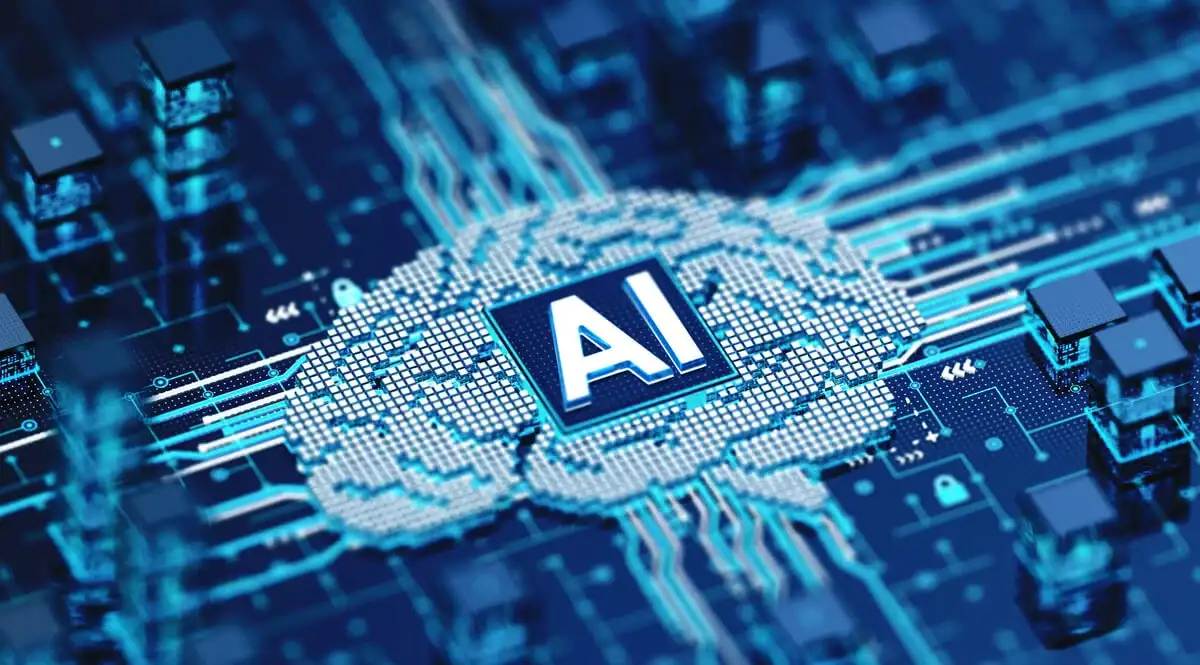Artificial Intelligence is here to stay! And it’s already having a big impact on a range of business operations, including governance, risk management, and compliance programs! Could AI be the next step in GRC’s evolution?
Thanks in large part to the recent boom of ChatGPT – the AI-powered chatbot, created by Microsoft-backed Open AI – which has both shocked and impressed with its ability to answer questions, write essays, and even argue legal cases – there has been no shortage of hype around this burgeoning technology.
For a while now, Artificial Intelligence (AI) has been firmly on the horizon, exciting business leaders across industries with the promise of being a game-changer in the way they operate. Today, countless organizations across varying sectors are leveraging AI tools to automate processes, improve decision-making, gain that much-coveted competitive edge, and transform the way they approach their governance, risk, and compliance functions.
The Oxford Dictionary defines AI as the theory and development of computer systems able to perform tasks that normally require human intelligence, such as visual perception, speech recognition, decision-making, and translation between languages.
Already, several industries have made serious breakthroughs that wouldn’t have been possible without AI. For example, AI is being deployed throughout the healthcare sector for everything from streamlining administrative workflows and reducing drug dosage errors to robot-assisted surgery. While the aviation industry relies on AI to build digital models that better predict when parts will fail.
In this blog, we unpack what Artificial Intelligence means in the context of GRC technology, we examine the benefits of leveraging AI-enabled GRC tools, and we explore what embracing digital transformation and AI would mean for businesses and the future of AI in the workplace.
The Use of AI in the Context of Governance, Risk and Compliance Technology
In the context of GRC technology – Artificial Intelligence and its sister technology “Machine Learning” allows the centralisation of large amounts of data from many sources and then applies pattern and trend analysis to identify risks and opportunities within that data.
Although AI can certainly be used to analyze and summarize risk & compliance data and produce likely outcomes and consequences, according to a recent blog by Michael Rasmussen of GRC 2020 there are also some areas where “AI fails” often due to dynamic changing environments, a lack of AI governance and controls, and poor data. These should not be overlooked when firms are looking to incorporate AI into their GRC programs.
Key Benefits of AI-Enabled GRC tools
As GRC teams look to mature their programs by freeing up resources through automation and process improvements that only technology solutions can offer, you may be wondering about the benefits of leveraging AI-enabled GRC tools. Some on the likely benefits on the horizon include:
- Improved Risk Assessments: Artificial intelligence will be able to analyze and join vast amounts of data and identify potential risks – enabling businesses to proactively manage risks and prevent crises. AI can recognize patterns and trends in data that humans may miss, providing more accurate risk assessments.
- Better Regulatory Compliance – By using AI organisations can stay up to date with regulatory requirements and ensure compliance with laws and regulations. AI can scan the horizon for regulatory changes, analyze data for compliance, and generate reports for regulators.
- Enhanced Fraud Detection – AI system can identify patterns of fraud and potential fraudsters and reduce the risk of fraudulent activities. Additionally, AI can also identify anomalies in transactions, allowing companies to flag suspicions and investigate them promptly.
- Streamlined Operations – AI model will automate routine procedures, free up staff to focus on more complex tasks, and improve efficiency by reducing errors and eliminating manual processes.
The benefits of AI-enabled tools within the GRC function are clear. By automating processes and improving decision-making, businesses can not only reduce risk but also save time and money and be more agile and responsive to the volley of changes in the market.
Learn more about Integrated Risk Management Tool.
Embracing Digital Transformation and AI Risk Management
Competent risk professionals would all agree that an integrated approach to GRC is the key to amalgamating the right data to generate useful insights. But when GRC software becomes powered by AI in the future, the AI capabilities will be able to analyze and summarize the GRC data instantly, providing vital insights for business leaders to make operational decisions regarding controls, budget, and resource allocation.
Digital transformation in GRC eliminates silos – Technology is already proving to be a problem solver in GRC. To date, there are many organisations that still have structured and unstructured data stuck in siloed operations. This was troublesome enough in the past, but as the world becomes more interconnected each day, a siloed approach to GRC is proving woefully inadequate. Not only can GRC technology help companies escape these structures, but it can also act as a form of integration between silos. When this consolidated data is then enriched and assessed by AI, it will provide a comprehensive view across departments, increasing collaboration and drawing attention to data-backed decision-making by breaking through these barriers.
AI enhances employee experiences – In a volatile business environment where GRC risks increase by the day, cutting down on time wasted is crucial. Not only will AI provide a faster way to locate, sort, and analyze risk as it develops, but it affords companies more freedom by streamlining operations among employees. When searches are faster, both front-line and second-line users can reduce time spent on administrative tasks and sifting through large data sets and prioritize what needs to get done based on the insights provided by AI analysis. By utilizing AI correctly, employees can easily connect the dots through large data sets and see the bigger picture.
The Future of AI in the Workplace: : Accountability and Transparency
AI has already had a big impact on the future of work; and has given organisations the power to reduce time spent on repetitive tasks, searching for information, and mapping, tracking, and analyzing data. When GRC platforms integrate with AI they won’t just offer data sorting – they’ll provide the resources to gain contextual intelligence that will lead companies toward smoother compliance, tighter security, and a future of steady growth and success.
Employers will be drawn to AI’s ability to automate routine tasks – this will allow employees to spend more time and effort contributing strategic value instead of wasting time on repetitive tasks and admin. When applied correctly – AI can help today’s organisations become more efficient and consistent by saving time & resources and increasing productivity all around.
Investing in AI-enabled technology elevates the role of GRC, which goes beyond traditional auditing responsibilities and compliance box-ticking with new automation techniques. In a world where data is the lifeblood of a progressive organisation, AI backed automation tools can help firms better anticipate and manage emerging risks and compliance issues.
Camms to Break New Ground in AI-Enabled GRC Management
To remain ahead of the curve, businesses in almost every industry will need to adopt AI to keep up with competitors and digitally native startups. As a leading GRC innovator, Camms is currently working on safely incorporating AI into its GRC platform and using this technology to enhance employee experiences.
As part of our broader AI initiative, Camms will offer a new functionality called “Ask Camms” – which will give staff the opportunity to ask questions about risk data and get recommendations on potential outcomes, issues, and opportunities. “Ask Camms” will be equipped with the ability to understand and respond to a wide range of language inputs and assist in identifying their potential causes, consequences, control gaps, and actions. While this introduction is still very much in the initial development stages, it will mark a significant milestone in our platform’s evolution.
This next step in our AI enabled governance, risk management, and compliance platform is the integration of an open AI framework. This new addition will assist with the end-to-end risk management processes – minimizing risk and ensuring compliance. Users can simply enter any questions relevant to risks and generate responses with a click of a button. It will not only prove useful for experienced risk professionals but also beneficial for newcomers to risk management since it makes intelligent recommendations based on your context.
We understand that there is a lot to cover when it comes to AI, and we are committed to sharing best practices so businesses like yours can ethically and securely embrace this groundbreaking technology. Reach out to Camms today to learn more about our GRC AI engine and receive recommendations on how to automate your own GRC programme. To learn about our GRC platform, simply reach out for a demo today.





